
Browse an alphabetical list of photographs. These historical images portray people, places, and events before, during, and after World War II and the Holocaust.
<< Previous | Displaying results 1651-1660 of 2641 for "Photo" | Next >>
Norbert Yasharoff, a Bulgarian Jew, wearing the compulsory star of David. His young sister was not then required to wear a star. Pleven, Bulgaria, between May and September 1943.
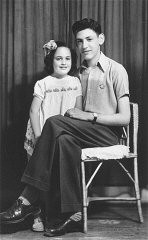
Norman and Amalie Salsitz with their first grandchild, Dustin. March 11, 1983. With the end of World War II and collapse of the Nazi regime, survivors of the Holocaust faced the daunting task of rebuilding their lives. With little in the way of financial resources and few, if any, surviving family members, most eventually emigrated from Europe to start their lives again. Between 1945 and 1952, more than 80,000 Holocaust survivors immigrated to the United States. Norman was one of them.
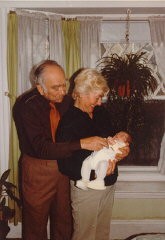
Norman Salsitz and Amalie Petranka shortly after they met (under their assumed identities of, respectively, Felicja Milaszewska and Tadeusz Zaleski). Krakow, Poland, March 15, 1945. With the end of World War II and collapse of the Nazi regime, survivors of the Holocaust faced the daunting task of rebuilding their lives. With little in the way of financial resources and few, if any, surviving family members, most eventually emigrated from Europe to start their lives again. Between 1945 and 1952, more than…
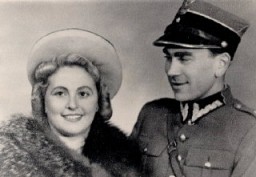
Norman Salsitz holds a photograph of himself and Amalie from 1945. 2004. With the end of World War II and collapse of the Nazi regime, survivors of the Holocaust faced the daunting task of rebuilding their lives. With little in the way of financial resources and few, if any, surviving family members, most eventually emigrated from Europe to start their lives again. Between 1945 and 1952, more than 80,000 Holocaust survivors immigrated to the United States. Norman was one of them.
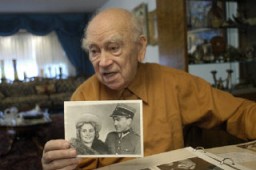
Norman Salsitz holds a photograph of his wife, Amalie, and daughter, Esther. 2004. With the end of World War II and collapse of the Nazi regime, survivors of the Holocaust faced the daunting task of rebuilding their lives. With little in the way of financial resources and few, if any, surviving family members, most eventually emigrated from Europe to start their lives again. Between 1945 and 1952, more than 80,000 Holocaust survivors immigrated to the United States. Norman was one of them.
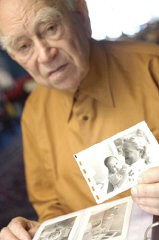
Norman (with camera) in the United States. August 1948. With the end of World War II and collapse of the Nazi regime, survivors of the Holocaust faced the daunting task of rebuilding their lives. With little in the way of financial resources and few, if any, surviving family members, most eventually emigrated from Europe to start their lives again. Between 1945 and 1952, more than 80,000 Holocaust survivors immigrated to the United States. Norman was one of them.
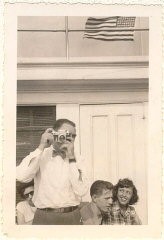
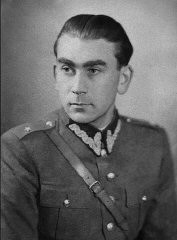
Norman Salsitz looks through his prewar family photographs. 2004. With the end of World War II and collapse of the Nazi regime, survivors of the Holocaust faced the daunting task of rebuilding their lives. With little in the way of financial resources and few, if any, surviving family members, most eventually emigrated from Europe to start their lives again. Between 1945 and 1952, more than 80,000 Holocaust survivors immigrated to the United States. Norman was one of them.
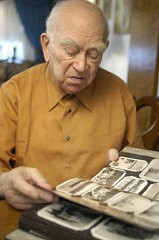
Norman Salsitz while under the assumed identity Tadeusz Zaleski. Legnica, Poland, 1945.
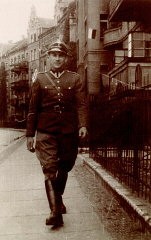
This 1929 portrait shows Norman Salsitz with his niece, Szandla Weinstein. Picture taken in front of a photographer's backdrop in the Kolbuszowa marketplace.
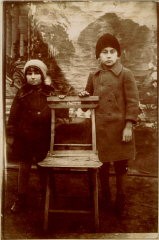
We would like to thank Crown Family Philanthropies, Abe and Ida Cooper Foundation, the Claims Conference, EVZ, and BMF for supporting the ongoing work to create content and resources for the Holocaust Encyclopedia. View the list of donor acknowledgement.